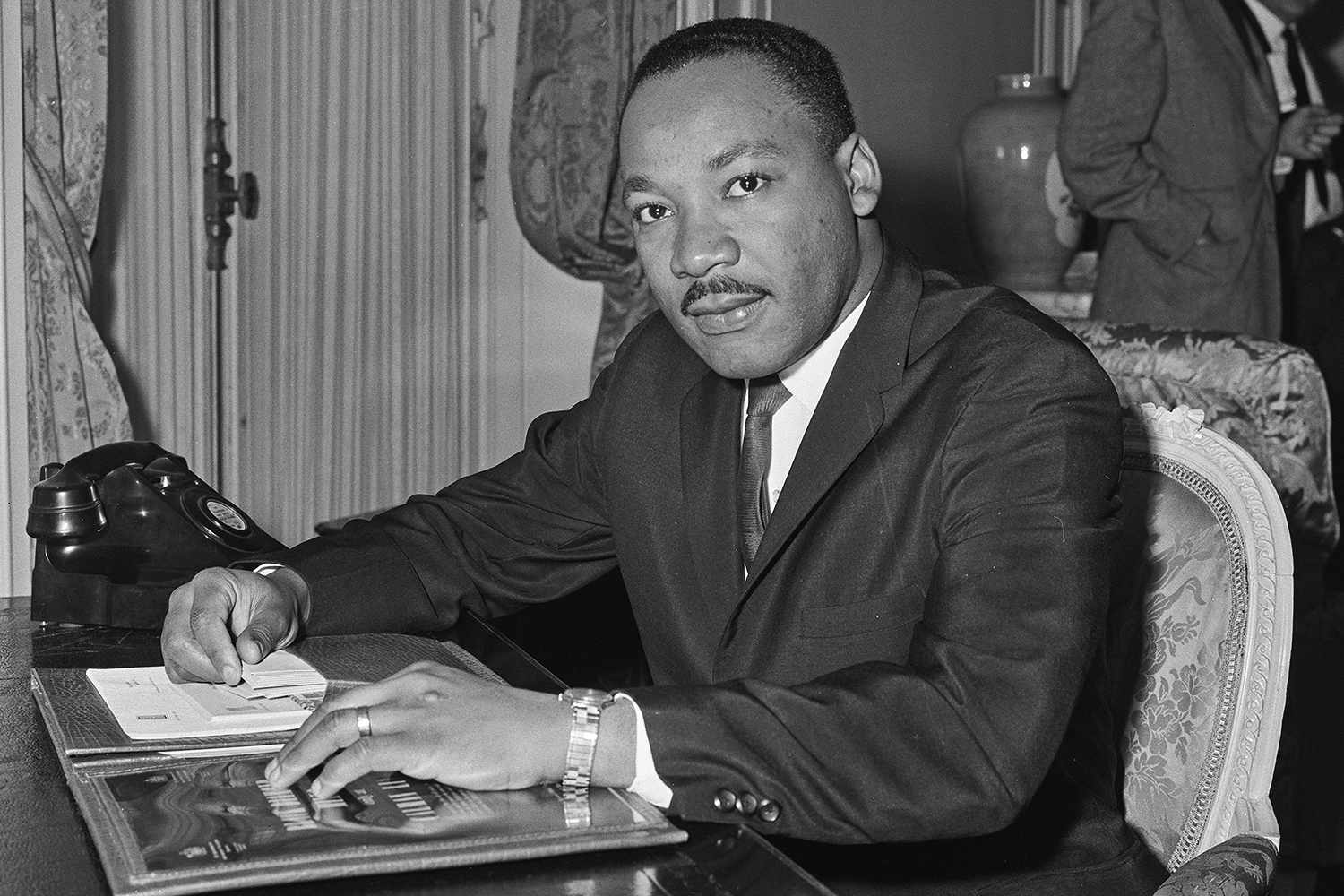The iconic “I Have a Dream” speech — delivered during the historic March on Washington for Jobs and Freedom on Aug. 28, 1963 — instantly comes to mind when reflecting on Dr. Rev. Martin Luther King Jr., one of the most transformative leaders of the civil rights movement.
Before his assassination at age 39 on April 4, 1968, the Nobel Peace Prize laureate spent a decade giving fearless orations and profound insights that continue to inspire generations, all deserving attention and consideration.
As we pay tribute to his life and legacy on Martin Luther King Jr. Day — observed on the third Monday of January in recognition of his birthday on Jan. 15, 1929 — we revisit some of his most powerful words.
Live Together
Robert w. Kelley
“We must learn to live together as brothers or perish together as fools.”
— from his March 22, 1964, speech in St. Louis
Not Fit to Live
Howard Sochurek
“If a man hasn’t discovered something that he will die for, he isn’t fit to live.”
— during a speech in Detroit on June 23, 1963
Having a Conscience
Underwood Archives/Getty Images
“On some positions, Cowardice asks the question, ‘Is it safe?’ Expediency asks the question, ‘Is it politic?’ And Vanity comes along and asks the question, ‘Is it popular?’ But Conscience asks the question, ‘Is it right?’ And there comes a time when one must take a position that is neither safe, nor politic, nor popular but he must do it because Conscience tells him it is right.”
— during a Feb. 6, 1968, speech in Washington, D.C.
Never Lose Hope
Michael Ochs Archives/Getty Images
“We must accept finite disappointment, but never lose infinite hope.”
— from In My Own Words, a collection of King’s sermons, speeches and writings selected by his widow, Coretta
Time to Do Right
PhotoQuest/Getty Images
“We must use time creatively, in the knowledge that the time is always ripe to do right.”
— in “Letter from Birmingham Jail,” April 16, 1963
Genuine Brotherhood
William Lovelace/Express/Getty Images
“The beauty of genuine brotherhood and peace is more precious than diamonds or silver or gold.”
— from his Nobel Peace Prize acceptance speech in Oslo, Norway, on Dec. 10, 1964
The Beauty of Diversity
Michael Ochs Archives/Getty Images
“Let us be dissatisfied until integration is not seen as a problem but as an opportunity to participate in the beauty of diversity.”
— during a speech at the Southern Christian Leadership Conference on Aug. 16, 1967, in Atlanta, Ga.
The Immortality of Violence
Hulton Archive/Getty Images
“Violence is impractical because it is a descending spiral ending in destruction for all. It is immoral because it seeks to humiliate the opponent rather than win his understanding: It seeks to annihilate rather than convert. Violence is immoral because it thrives on hatred rather than love. It destroys community and makes brotherhood impossible. It leaves society in monologue rather than dialogue. Violence ends up defeating itself. It creates bitterness in the survivors and brutality in the destroyers.”
— in his Nobel Lecture delivered at the University of Oslo on Dec. 11, 1964
Only Love
Afro American Newspapers/Gado/Getty Images
“Darkness cannot drive out darkness; only light can do that. Hate cannot drive out hate, only love can do that.”
— from King’s 1963 book, Strength to Love
“I Have a Dream…”
AFP/Getty
“I have a dream that my four little children will one day live in a nation where they will not be judged by the color of their skin but by the content of their character.”
— during King’s “I Have a Dream” speech on Aug. 28, 1963, at the Lincoln Memorial in Washington, D.C.
Rocky Roads
Morton Broffman/Getty Images
“I must confess, my friends, the road ahead will not always be smooth. There will be still rocky places of frustration and meandering points of bewilderment. There will be inevitable setbacks here and there. There will be those moments when the buoyancy of hope will be transformed into the fatigue of despair. Our dreams will sometimes be shattered and our ethereal hopes blasted. We may again with tear-drenched eyes have to stand before the bier of some courageous civil rights worker whose life will be snuffed out by the dastardly acts of bloodthirsty mobs. Difficult and painful as it is, we must walk on in the days ahead with an audacious faith in the future.”
— from his speech at the Southern Christian Leadership Conference on Aug. 16, 1967, in Atlanta, Ga.
Our Rightful Place
Ellsworth Davis
“In the process of gaining our rightful place, we must not be guilty of wrongful deeds. Let us not seek to satisfy our thirst for freedom by drinking from the cup of bitterness and hatred.”
— during his “I Have a Dream” speech on Aug. 28, 1963, at the Lincoln Memorial in Washington, D.C.
Injustice Is a Threat
Don Cravens/The LIFE Images Collection/Getty Images
“Injustice anywhere is a threat to justice everywhere.”
— in “Letter from Birmingham Jail,” April 16, 1963
Power with Love
Don Cravens/The LIFE Images Collection/Getty Images
“What is needed is a realization that power without love is reckless and abusive, and that love without power is sentimental and anemic. Power at its best is love implementing the demands of justice, and justice at its best is love correcting everything that stands against love.”
— from a speech at the Southern Christian Leadership Conference on Aug. 16, 1967, in Atlanta, Ga.
Where He Stands
Reg Lancaster/Express/Getty Images
“The ultimate measure of a man is not where he stands in moments of comfort and convenience, but where he stands at times of challenge and controversy.”
— from King’s 1963 book, Strength to Love

